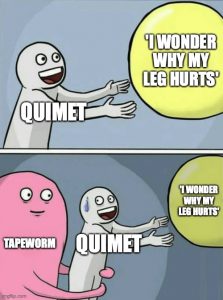The Time of the Doves by Mercé Rodoreda is definitely a heart-wrenching book, and challenging to read at times (well, I mean basically all of the time). There is little to be happy about in this book, and the times that are happy, you can probably count on two hands. Nevertheless, I think that the complexity and layers that the book has are a lot to unpack. This book left me with so many questions that I think discussions would be very helpful to clear up. I enjoyed reading from Natalia’s perspective the effects the war had on a woman living through the revolution; that is not something you often read in war-centered books. It made me think a lot about the significance of conflict on civilians, people of different classes, and a mother to two children.
One of the first sadnesses I identified in the book was how Natalia decided to leave her fiancé for Quimet; it really hurt me when she found her ex-fiancé and they talked for a little and he had nothing but well wishes for her. Quimet was once charming, lovely, and intriguing. However, over the course of the novel, it basically fades into nothingness, and creates more pains for him, his family, and for Natalia. I believe that there is a reason for this choice to write him this way, but its still difficult because Natalia had a choice and upon reflecting on her decisions, she might have regretted getting with Quimet.
While reading, I continually found myself thinking ‘wow. Natalia truly is a hard-working woman whom I cannot begin to understand.’ Well, Im attempting to do so now, but I suppose you know what I mean; she works until she can barely stand, takes care of her two children who were painstakingly difficult to raise, deal with her husband who moans and groans til the cows come home, and look after a ton of doves which she soon grows to despise. I remember her ‘last straw’ moment with the doves, and as violent as she was, I sort of understood why she acted as she did. I interpreted her feelings as being sick and tired of Quimet’s actions, especially with the doves and towards her. I feel like Natalia is so under appreciated by her husband. It seems as if Natalia once was very fearful of changing in front of Quimet, but the amount of time they have spent together, she was just done. I think that the use of doves within the novel is a massive metaphor; the exact meaning, I am still grappling with. But there is no way that the use of doves was this heavy and there is no significance to them. Originally when reading, I thought that the use of doves could be a metaphor for Quimet and Natalia’s dreams and hopes, but I don’t know if that would make sense due to Natalia absolutely destroying the doves. Unless that is actually what was intended…
The Time of the Doves is packed with symbolism, metaphors, and references. I constantly found myself taking note of them. For example, the constant use of flowers to describe Antonio and Rita, while also mentioning them when Quimet’s mother died, and the jonquil’s that his mother planted in her flashback about the boys uprooting them. Even the rose of Jericho that she had kept since Quimet was born (p. 59). So much thought and meaning went into the intentions of the symbols that Rodoreda used throughout the story. I also found that the consistent use of foreshadowing to be intriguing. Similar to the flower example, Quimet’s mother makes a remark about boys being difficult; we then see how Antonio is born, and he clearly is not an easy child. The employment of symbolism. Metaphors, and foreshadowing enrich the story and make it extra enjoyable to read. It felt slightly like a puzzle, in which if I went over it again, I would find things I missed the first time around.
A question I sort of brought up before that I would like to discuss is ‘what exactly is the significance of the doves within the context of the story?’ Maybe it was clear and I misunderstood it, but I’m a little confused about it.

I feel like this meme is from a super insignificant part of the book, but I thought of it anyways lol.